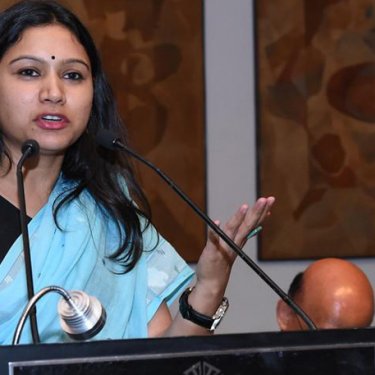RSF demands police protection for Indian journalist receiving death threats

Reporters Without Borders (RSF) calls on the Indian security services to make every effort to protect Neha Dixit, a Delhi-based freelance journalist who – after an attempted break-in at her home on the evening of 25 January – revealed that she has been subjected to an extremely targeted campaign of threats for months.
Two days after the attempted break-in, which might otherwise have seemed relatively trivial, Neha Dixit revealed on Twitter that she has been getting threatening phone calls for the past five months from people who are clearly spying on her and know exactly where she is at any moment.
Dixit told RSF: “Once I went out on the balcony and the caller said, ‘Oh, so you're standing on the balcony. You think you're a great reporter? I’ll throw acid in your face,’ Another time, they said, ‘Your husband isn’t home and you’re at your friends? I'll rape you and throw your naked body on the road’.”
In December, Dixit began getting as many as five or six calls a day. “There are two or three different voices, but they’re calling from hundreds of numbers,” she said. “The whole point of this exercise is to harass me to the point that it affects my work. I don't know what the immediate trigger was. I don’t know if it’s related to a specific report I wrote. But the person at the other end of the line says, ‘reporter, reporter’ again and again.”
Alarm
The callers have also threatened Dixit’s partner, the documentary filmmaker Nakul Singh Sawhney. Ever since the release of his documentary about religious riots in the northern city of Muzaffarnagar in 2013, Sawhney has been the target of threats orchestrated by members of Akhil Bharatiya Vidyarthi Parishad (ABVP), the student wing of Rashtriya Swayamsevak Sangh (RSS), the Hindu nationalist militia that is allied with India’s ruling party.
“Everything indicates that Neha Dixit and her partner are being targeted because of their work, and that the attempted break-in at their home should be seen as an alarm signal,” said Daniel Bastard, the head of RSF’s Asia-Pacific bureau. “We urge the Indian police to do everything possible to protect this journalist and to find those responsible for these revolting threats. It would be terrible for press freedom in India and the country’s image abroad if there was another Gauri Lankesh.”
Brutal murder
Newspaper editor Gauri Lankesh was gunned down outside her home in September 2017 after receiving death threats from Hindu nationalists. Her accused killer, who was arrested in June 2018, is a member of the far-right Hindu militia Sri Ram Sene, which means “The Army of Lord Rama.”
Rana Ayyub, another well-known reporter who investigated Prime Minister Narendra Modi’s rise to power, has been the target of repeated hate campaigns, death threats and calls for her murder, especially in April 2018 and November 2019.
RSF asked the United Nations to investigate in November 2019 after a surge in death threats against Swati Chaturvedi, the winner of the RSF Press Freedom Prize for Courage in 2018. One of the threatening messages described her as “One more Gauri Lankesh in the making,” In response to RSF’s request, five UN special rapporteurs wrote to the Indian authorities asking them to address this kind of situation.
India is ranked 142nd out of 180 countries in RSF's 2020 World Press Freedom Index.



